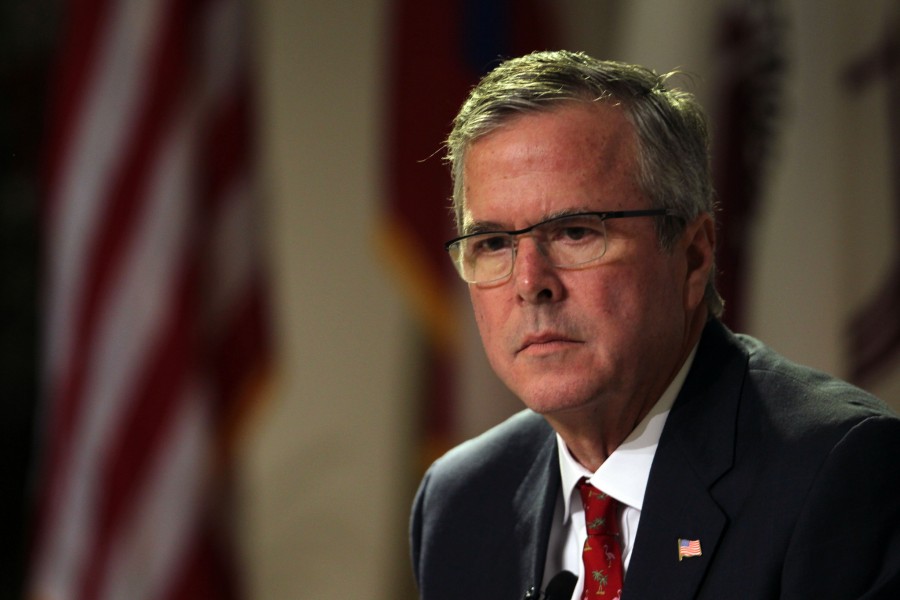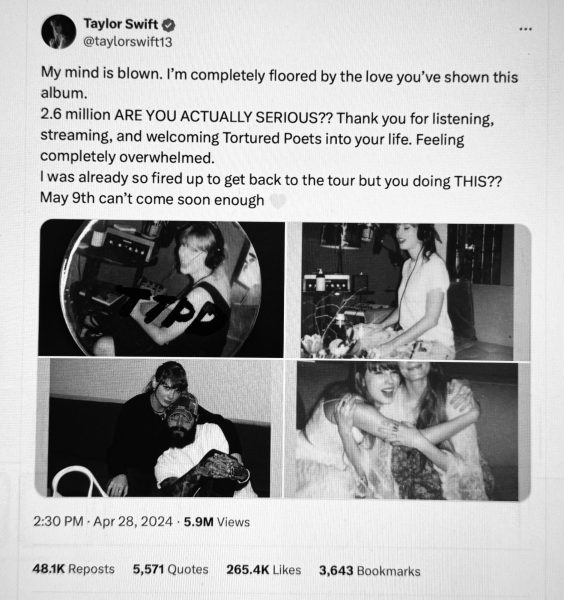Away from the establishment
Jeb Bush has collected more than $120 million from super PACs. Photo courtesy of trbimg.com
When talking about politics, most people become squeamish or indifferent to trends in polling for presidential candidates, especially more than eight months away from the 2016 general election.
Many will say that money’s substantial influence in the election cycle corrupts the very foundation of democracy and turns it, effectively, into a plutocracy.
A plutocracy is an oligarchy, where only the wealthiest citizens determine policy and govern the direction of the country.
This has held mainly true in past elections, considering that super PAC contributions amounted to more than $828 million in the 2012 election cycle. A super PAC, technically an independent organization, helps collect campaign contributions for presidential candidates. There are no limits for funds in a super PAC and normally they are funded by large corporations.
When examining this 2016 primary election cycle, the Democratic and Republican races that lead up the general election include Donald Trump, one of the Republican party’s highest polling candidates. He has collected and spent a total of $130,000 from super PACs, spending roughly $2 million from his own pocket. “The Donald” claims to be completely self-financed, reporting a net worth of more than $4.5 billion.
On the other side of the aisle, Democratic candidate Bernie Sanders has also collected and spent a grand total of $0, relying mainly on small contributions.
Both Trump and Sanders have relied on either small individual donations or self financing. These two successful campaigns demonstrate the ability for candidates to poll high even without a super PAC.
Starkly contrasting Sanders and Trump is Republican Jeb Bush, who has spent the most of any candidate, collecting more than $120 million from super PACs, and is in fifth place in the most recent count of delegates. The deviations from traditional establishment politics might explain the lack of super PAC funding from two of the highest polling candidates in their respective parties.
Trump has relied on fear mongering and blasting government officials as a whole, including Republicans, when it’s advantageous to his political self interests. His boast of relying on his own fortune to finance his campaign has led many to believe he is devoid of big money influence.
Sanders boasted the lack of super PAC donations, all while collecting more than $20 million in January in small individual contributions, finishing in second to Hillary Clinton in Iowa and first in New Hampshire. The race between Clinton and Sanders in Iowa was so close that some delegates were awarded on a coin flip.
That’s right folks, just as overtime possession in the NFL is decided, Clinton gained the overall victory in the Iowa Caucus by literal coin flips. The current count of delegates for Sanders and Clinton is very close, but we are only two states through the election process. Sanders gained the vote of 83 percent of voters between the ages 18 to 30 in New Hampshire.
You may ask “What is the purpose of comparing two very different candidates with varying amounts of experience in completely different sectors?” “What’s the use?”
Sanders and Trump have jumped as far away from establishment politics of each respective party as possible by avoiding big money influence that comes from corporate giants such as Goldman Sachs, General Electric, Verizon, AT&T, JPMorgan Chase, Citigroup, Microsoft, Morgan Stanley, UPS and Bank of America.
We all know and use services from the previously listed corporations, but they control a vast amount of the influence in buying American political candidates. This is why anti-establishment rhetoric is appealing more and more to Americans. Once we hear voices of change, we begin to root against the machine we feel has corrupted and undermined the political process.
Zach Flaten is a staff writer for The Dakota Student. He can be reached at [email protected]
















